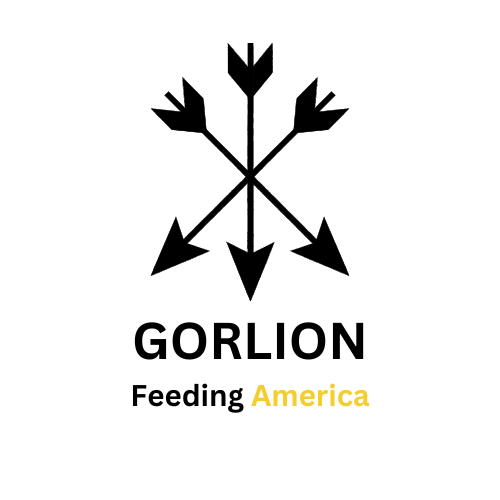The health disparities that plague the United States serve as stark reminders of the deep-seated inequalities entrenched within our society. The statistics tell a sobering tale: Black individuals bear the heaviest burden of heart disease deaths, with rates soaring to 208.6 per 100,000 population, followed closely by Whites at 166.4, and Hispanics at 111.3. In stark contrast, Asians boast the lowest rates at a mere 79.2.
These numbers are not mere abstractions; they represent lives lost, families fractured, and communities grappling with the staggering burden of chronic disease. Yet, amidst this grim reality, there exists a glimmer of hope: the profound lessons embedded within Asian diets.
Central to the Asian diet are its pillars of health: an abundance of vegetables, fruits, whole grains, and lean proteins, often complemented by the inclusion of soy products like tofu. These dietary staples serve as potent guardians against chronic diseases, offering a pathway to a life not merely prolonged but enriched in quality and vitality.
Recent data underscores the transformative potential inherent within Asian dietary principles. Individuals identifying as Asian boast the longest average lifespan in the United States, with a projected life expectancy of 85.6 years—a remarkable testament to the power of diet in shaping health outcomes. In stark contrast, Hispanic individuals face a life expectancy of 77.7 years, followed closely by white people who declined by one full year from 77.4 years in 2020 to 76.4 years in 2021, while Black or African American individuals languish with a mere 70.8 years—a disparity that underscores the urgent need for change.
But what sets Asian diets apart, and how can black, white and Hispanic communities harness these dietary principles to enhance their quality of life?
Let us delve deeper into the data to grasp the magnitude of the problem and the transformative potential inherent within Asian dietary principles. Recent studies have highlighted significant disparities in diet quality among racial and ethnic groups in the United States. According to a study by Henry Ford Health, Asian Americans consistently exhibited better diet quality, while African Americans had the lowest overall diet quality. Notable differences included decreased sodium and sugar intake among certain groups and increased soy consumption among Caucasians.
Furthermore, the history of soy in Asian cultures provides invaluable insights into the profound impact of dietary choices on health outcomes. Soybeans, a cornerstone of Asian diets for millennia, have been linked to numerous health benefits, from reducing the risk of heart disease to improving bone health and even enhancing cognitive function.
1. Enhanced Energy and Vitality: A diet abundant in vegetables, fruits, and whole grains provides the body with essential nutrients and antioxidants, fueling it with sustainable energy and vitality. Say goodbye to fatigue and lethargy and embrace a life brimming with vigor and vitality.
2. Physical Strength and Resilience: With a foundation built on lean proteins and whole grains, individuals can cultivate physical strength and resilience that withstands the test of time. Stronger muscles, improved cardiovascular health, and enhanced endurance become not just aspirations but tangible realities.
3. Sharpened Mental Acuity: The nourishment provided by a diet rich in fruits, vegetables, and omega-3 fatty acids from sources like tofu isn’t limited to the body alone. The brain, too, reaps the rewards, with sharper cognitive function, improved memory, and enhanced mental clarity becoming hallmarks of daily life.
4. Fortified Bones and Joints: As the years unfold, the strength of bones and joints becomes paramount to maintaining mobility and independence. Through the consumption of calcium-rich foods like tofu and dark leafy greens, individuals can fortify their skeletal structure, warding off the ravages of osteoporosis and arthritis.
5. Longevity in Lovemaking: In the tapestry of a fulfilling life, intimacy and connection weave threads of profound significance. By embracing a diet abundant in nutrients that promote cardiovascular health and blood flow, individuals can nurture a robust and enduring sex life, fostering intimacy that endures through the years.
The transformative power of Asian diets extends far beyond the realm of physical health, permeating every facet of life with a renewed sense of vitality and well-being. Yet, the journey towards embracing these dietary principles is not without its challenges. It requires a collective commitment to change, a willingness to challenge entrenched norms, and a recognition of the transformative potential inherent within each meal.
In a society where health disparities persist, the adoption of Asian dietary principles by black, white and Hispanic communities represents not just a dietary shift but a paradigmatic evolution—a reimagining of what it means to live a life of optimal health and vitality. It’s time to cast off the shadows of inequality and embrace a future where every individual, regardless of race or ethnicity, can thrive with boundless energy, strength, and resilience.
In conclusion, the journey toward health equity is not merely a destination but a continuous evolution—a commitment to fostering well-being and empowerment within every community. As we draw inspiration from the rich tapestry of Asian diets and incorporate nourishing staples like soybeans into our culinary repertoire, we embark on a transformative journey toward a future where everyone has access to the resources they need to thrive. Gorlion stands as a beacon of this transformative journey, offering premium organic soybeans as a cornerstone of our collective efforts. Our commitment to providing high-quality ingredients reflects our dedication to fostering health equity and empowerment among diverse populations. Let us celebrate diversity, honor cultural heritage, and unite in our quest to build a healthier, more equitable world for all.

